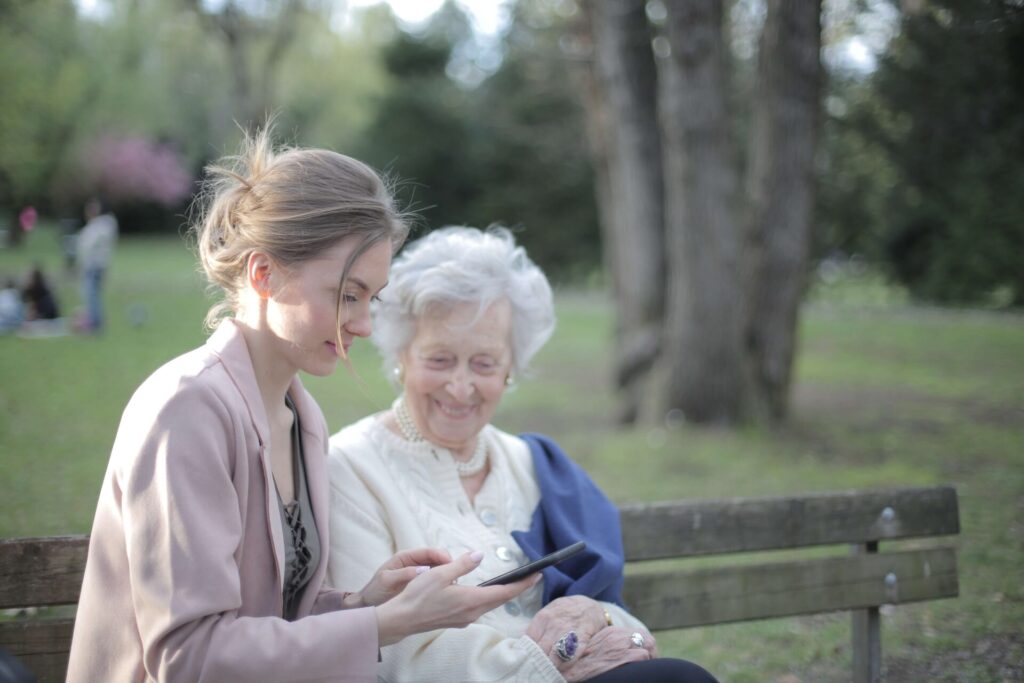
If one or more of your parents experience addiction issues, tackling the conversation can be very difficult. Not only can it feel like you’re being forced into the role of parent yourself, but it’s hard to get the person who raised you to understand that they have a problem.
There’s a dynamic in this conversation that’s hard to navigate, and you can often feel forced into silence.
But you’re not alone. Talking about the problem is the first step, and there’s support out there for both children of addicted parents and those struggling with addiction themselves. It might be a hard subject to vocalize and even harder to hear about, but the talk is necessary for a healthy path to recovery.
Starting the conversation, moving it to a productive place, and getting to a solution you both feel good about, is possible when you know what to say.
The Effect of Having a Parent with Addiction
Living with a parent who has addiction issues can have lifelong effects on a child’s mental well-being. Even when you’re an adult and have moved away from the family home, growing up in a domestic environment that was often chaotic and unstable can be detrimental to a person’s ability to interact with the world in a healthy way.
Not only may you have been subject to mental and physical abuse, but it’s likely you also experienced long-term neglect as well. Children living under these conditions are more likely to have a negative school experience, achieve lower grades, and even develop behavioral issues due to a lack of healthy rules within the home.
Alongside physical issues like malnutrition, emotional problems are likely too. It can be hard to bond with a parent who’s living with an addiction disorder, thanks to mood swings, memory problems, and a lack of physical closeness. Without a healthy attachment, it’s harder to grow up knowing what healthy, positive relationships look like.
Because of this, children of addict parents are 3 times more likely to be victims of abuse in their adult relationships.
Similar to this, a person raised by parents who had addiction issues are also 4 times as likely to develop addiction problems themselves. It’s also important to note that addictive disorders can be genetic, at least in part. Various studies have found such disorders to be at least 50% heritable when people are closely related.
The knowledge of this connection can be worrying when a person wants to start a family of their own.
When to Have the Conversation
Whether your parent has had an addiction disorder since you were young or it’s something they’ve developed more recently, talking about it is the best way to get involved. And no matter your parent’s addiction trouble, picking your moment is key to getting through and having a positive conversation about getting help.
You should only try to initiate a conversation like this once you’ve done your research. Find out about addiction and how it occurs, what the causes are, and who it can happen to. Never ever walk into a conversation like this without this knowledge on your side, as it could end with your worries being dismissed or ignored.
Also, you need to be in a place where you’re ready to listen. A lot of hurt can be involved, on both sides, but that should not be the focus here. You need to be able to listen as much as you talk. You need to know how they’re feeling and what they’re thinking, and a person with an addiction issue should never feel like they’re being preached to.
Finally, talk about addiction when you’ve got the patience to do so. This is not a conversation you can rush or have on the fly. And this is especially true if you’ve already tried to talk about it. Remember, even if the conversation didn’t go well in the past, it’s important to try again. Otherwise, your parent’s chance at recovery may be delayed.
Language to Use
This conversation should never come from a place of blame or judgment. You need to let them know that you’re there to help them and on their side. So be sure not to lash out, which can be an easy mistake. Instead, try to be positive about the ways you can help.
It’s also best to use statements that start with ‘I feel’ when talking about your worries. You feel a certain way about what they’re doing, and you feel like they’re putting their health at risk, etc. Nothing is a fact when it comes to navigating this relationship and laying emotions on thick can complicate things further.
Where to Find Help
Help exists in many forms when it comes to addiction. When a loved one is going through this struggle, finding the right treatment can be incredibly complex. It can sometimes feel like you’re taking two steps forward and one step back.
But when that loved one is a parent—someone who brought you into the world and raised you—it’s natural to want to seek out comprehensive treatment. And often enough, the best way to help a loved one with addiction recovery is to liaise with rehab services and outpatient programs.
Here at Alvarado Parkway Institute, our Center for Aging was made with older people and seniors in mind, especially in regard to their unique mental health concerns. With this program in place, we aim to help you to pinpoint your parent’s particular addiction disorder and deliver a holistic step program to live healthily with it.
But doing your research is only half the battle. If you need help with starting the conversation around addiction, or you’re keen to help a parent get into a center of recovery, talk to us. You can also check out our website for more information and find more tips on constructive ways to help a loved one with a mental health issue.